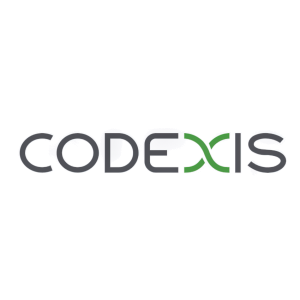Codexis Enters Exclusive Licensing Agreement for Newly Engineered Double-Stranded DNA Ligase with Roche
REDWOOD CITY, Calif., Feb. 26, 2024 (GLOBE NEWSWIRE) -- Codexis, Inc. (NASDAQ: CDXS), a leading enzyme engineering company, today announced it has entered into an agreement with Roche for an exclusive, global license for the Company’s newly engineered double-stranded DNA (dsDNA) ligase for next-generation sequencing (NGS) library preparation and the Company’s EvoT4™ DNA ligase. Under the terms of the deal, Codexis will receive upfront and technical milestone payments. This deal supersedes the prior exclusive license on the EvoT4™ DNA ligase.
“This transaction is the latest example of our ongoing commitment to focusing on the core areas of our business where we have the biggest opportunity to create impact in the market,” said Kevin Norrett, MBA, Chief Operating Officer of Codexis. “Since announcing our prioritized strategy last July, we’ve executed multiple deals to monetize our non-core assets with market-leading companies. We are excited to collaborate again with Roche on this novel, dsDNA ligase. As a leader in NGS technologies, Roche continues to bring important kits to market that provide the sensitivity and specificity required for the next wave of innovative NGS applications. With Roche’s technical ability and commercial reach, we now have the ability to maximize the potential of our dsDNA ligase.”
Engineered using Codexis’ proprietary CodeEvolver® technology, this newly engineered dsDNA ligase improves the ligation efficiency of DNA fragments and adapters, without bias, during NGS library preparation. This is especially beneficial for NGS workflows requiring the highest sensitivity, even when the amount of starting material is constrained. Compared to wild-type enzyme, the newly engineered dsDNA ligase is developed to higher ligation efficiency in shorter reaction times and higher library yields and complexity, with minimal substrate sequence bias.
About Codexis
Codexis is a leading enzyme engineering company leveraging its proprietary CodeEvolver® technology platform to discover, develop and enhance novel, high-performance enzymes and other classes of proteins. Codexis enzymes solve for real-world challenges associated with small molecule pharmaceuticals manufacturing and nucleic acid synthesis. The Company is currently developing its proprietary ECO Synthesis™ platform to enable the scaled manufacture of RNAi therapeutics through an enzymatic route. Codexis’ unique enzymes can drive improvements such as higher yields, reduced energy usage and waste generation, improved efficiency in manufacturing and greater sensitivity in genomic and diagnostic applications. For more information, visit www.codexis.com.
Forward-Looking Statements
This press release may contain forward-looking statements within the meaning of Section 27A of the Securities Act of 1933, as amended, and Section 21E of the Securities Exchange Act of 1934, as amended. In some cases, you can identify forward-looking statements by terminology such as “aim,” “anticipate,” “assume,” “believe,” “contemplate,” “continue,” “could,” “design,” “due,” “estimate,” “expect,” “goal,” “intend,” “may,” “objective,” “plan,” “positioned,” “potential,” “predict,” “seek,” “should,” “suggest,” “target,” “on track,” “will,” “would” and other similar expressions that are predictions of or indicate future events and future trends, or the negative of these terms or other comparable terminology. To the extent that statements contained in this press release are not descriptions of historical facts, they are forward-looking statements reflecting the current beliefs and expectations of management, including but not limited to the potential benefits of the parties’ collaboration, including the anticipated impacts thereof on Codexis’ financial success, and the potential commercial success of the Codexis-engineered dsDNA ligases. You should not place undue reliance on these forward-looking statements because they involve known and unknown risks, uncertainties and other factors that are, in some cases, beyond Codexis’ control and that could materially affect actual results. Factors that could materially affect actual results include, among others: Codexis’ dependence on its licensees and collaborators; if any of its collaborators terminate their development programs under their respective license agreements with Codexis; Codexis may need additional capital in the future in order to expand its business; if Codexis is unable to successfully develop new technology such as its ECO Synthesis™ platform and dsRNA; Codexis' dependence on a limited number of products and customers, and potential adverse effects to Codexis’ business if its customers’ products are not received well in the markets; if Codexis is unable to develop and commercialize new products for its target markets; if competitors and potential competitors who have greater resources and experience than Codexis develop products and technologies that make Codexis’ products and technologies obsolete; if Codexis is unable to accurately forecast financial and operational performance; and market and economic conditions may negatively impact Codexis' business, financial condition and share price. Additional information about factors that could materially affect actual results can be found in Codexis’ Annual Report on Form 10-K filed with the Securities and Exchange Commission (“SEC”) on February 27, 2023 and in Codexis’ Quarterly Report on Form 10-Q filed with the SEC on November 3, 2023, including under the caption “Risk Factors,” and in Codexis’ other periodic reports filed with the SEC. Codexis expressly disclaims any intent or obligation to update these forward-looking statements, except as required by law.
For More Information
Investor Contact
Carrie McKim
(336) 608-9706
ir@codexis.com
Media Contact
Lauren Musto
(650) 412-8205
media@codexis.com









